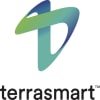Dive Brief:
-
The Federal Energy Regulatory Commission approved 11 enforcement office settlement agreements totaling $57.5 million in fiscal year 2022 compared with nine approved agreements totaling $7.9 million in FY21, according to the agency’s annual enforcement report released Thursday.
-
The enforcement office opened 21 investigations in FY22, up from a dozen the year before, targeting potential market manipulation, possible tariff violations and potential misrepresentations prohibited by the agency’s duty of candor rule, among other things, Samantha Maurer, a FERC attorney, said during the agency’s monthly meeting.
-
FERC staff is investigating possible market manipulation during Winter Storm Uri in February 2021, FERC Chairman Richard Glick said during a media briefing. He did not provide details.
Dive Insight:
There was a lull in enforcement activity before FERC Commissioner James Danly succeeded Neil Chatterjee as chairman in late 2020, according to Glick.
“It's important to have the cop on the street,” Glick said. People will “think twice before they try to engage in market manipulation, before they try to evade another commission rule.”
Some of the companies reaching agreements with the enforcement office are Constellation NewEnergy, Dynegy Marketing and Trade, Enerwise Global Technologies, which goes by CPower, and Salem Harbor Power Development, according to the report.
In FY22, FERC’s Division of Audits and Accounting completed 12 audits of public utility, natural gas and oil pipeline companies, with 51 findings of non-compliance and $158 million in refunds and other recoveries.
The refunds and recoveries were related to the improper application of merger-related costs, lobbying, charitable donations, membership dues and employment discrimination settlement costs, among other findings, according to the report.
Some transmission owners have been including “construction work in progress,” called CWIP, in their rate base when they weren’t allowed, according to the report.
CWIP, an incentive FERC can authorize, allows a company to recover construction costs as they occur without waiting to file a rate case after a transmission facility is completed.
“Recent audit activity has found that effective procedures and controls were lacking to ensure full compliance with the conditions of commission orders approving transmission incentive rate treatments,” the enforcement office said.
More robust procedures and controls could have prevented the failure to comply with FERC’s rules, according to the report.
















